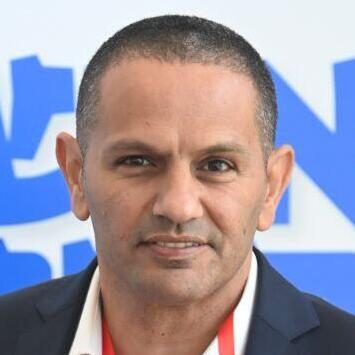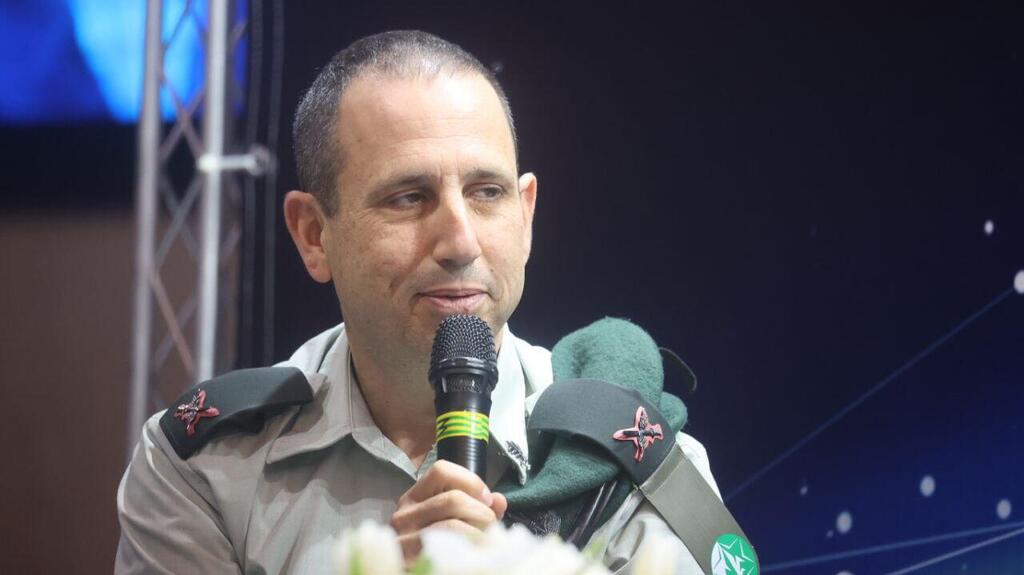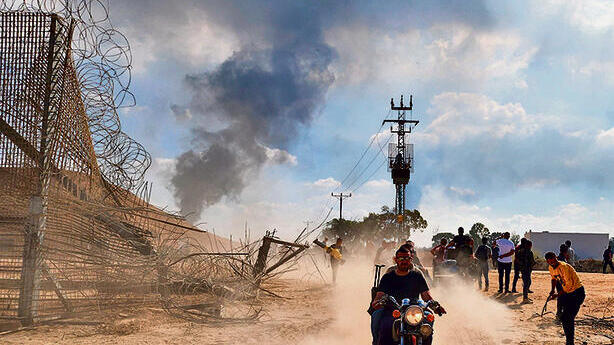Getting your Trinity Audio player ready...
Nearly 17 months after Hamas’ October 7 attack, the IDF’s top leadership convened to review findings from the military’s internal investigation. Among the 600 commanders present, Brig. Gen. Yossi Sariel, head of the military intelligence Unit 8200, drew the most attention, having already assumed responsibility and announced his resignation. He is set to be replaced in two weeks.
Sariel delivered a scathing critique of Chief of Staff Lt. Gen. Herzi Halevi and the investigation process, arguing that the inquiry failed to ask the most crucial questions and fully assume responsibility, instead shifting blame onto others.
Sariel's criticism was professional, not personal. He and Halevi have been close friends for years, dating back to Sariel's time as an intelligence officer under Halevi’s command in the IDF’s 91st Brigade.
“On October 7 at 06:29, I did not fulfill my mission as expected by my commanders, myself and—most importantly—the citizens of this country that I love so much,” he said. “I failed. This cannot be undone, and I bow my head and ask for forgiveness.”
He detailed the thorough, six-day probe conducted within the Intelligence Directorate, involving all active and reserve colonels and brigadier generals. “It was intense, earth-shattering. At times, I feared the intelligence apparatus would collapse, but because of these investigations, you now have a comprehensive inquiry,” Sariel said. He invited those present to read the full 148-page report documenting the mistakes and failures of Unit 8200.
Sariel also addressed systemic military failures, saying, “October 7 was not an accident—it was a disease that spread through the military. We failed to investigate how it spread, and that critical question remains unanswered.” He criticized the IDF for neglecting strategic assessments, particularly regarding Hamas’ growing military capabilities.
Hamas terrorists rampaging through Sderot during the Oct. 7 massacre
He pointed to key intelligence failures, noting that Hamas leader Yahya Sinwar had identified two conditions that would have deterred his attack: IDF tanks positioned at the border and drones in the air. “We saw Hamas activating SIM cards and mobilizing emergency assets, yet we failed to respond. If we had deployed even minimal deterrence measures, the attack might never have happened,” he argued.
Get the Ynetnews app on your smartphone: Google Play: https://bit.ly/4eJ37pE | Apple App Store: https://bit.ly/3ZL7iNv
Sariel accused senior commanders of avoiding accountability. “Had we made just two decisions that night—to move the tanks and launch the drones—Hamas would have scrapped its plan, except for a single unit that would have been neutralized. If that had happened, would anyone here have said the success wasn’t theirs? Would they have passed the credit to the Air Force? Or would they have taken their share of the glory?”
He concluded by warning that the IDF’s failure was not just operational but cultural. “We did not see Hamas as an army, so we allowed it to remain at our border, minutes from civilian communities. We believed the land barrier and intelligence units alone would secure us. That was a fundamental flaw in our military structure and values,” he said.
Referencing past political statements, Sariel remarked, “A politician once said he was responsible for a disaster but not to blame,” alluding to former Public Security Minister Amir Ohana’s response to the 2021 Mount Meron tragedy. “We in the military often looked down on politicians who were not raised on our values of real responsibility. But when we win, the entire military takes credit, and when we fail—suddenly, it’s only the lower ranks who are to blame.”








